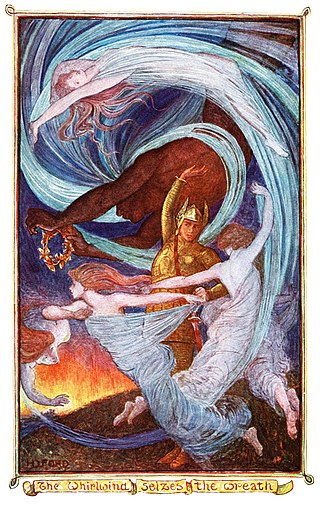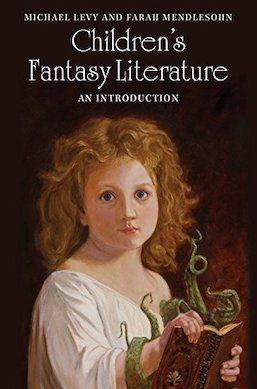Related Research Articles

Ursula Kroeber Le Guin was an American author. She is best known for her works of speculative fiction, including science fiction works set in her Hainish universe, and the Earthsea fantasy series. Her work was first published in 1959, and her literary career spanned nearly sixty years, producing more than twenty novels and over a hundred short stories, in addition to poetry, literary criticism, translations, and children's books. Frequently described as an author of science fiction, Le Guin has also been called a "major voice in American Letters". Le Guin said she would prefer to be known as an "American novelist".

The Mythopoeic Awards for literature and literary studies are given annually for outstanding works in the fields of myth, fantasy, and the scholarly study of these areas. Established by the Mythopoeic Society in 1971, the Mythopoeic Fantasy Award is given for "fiction in the spirit of the Inklings", and the Scholarship Award for non-fiction work. The award is a statuette of a seated lion, with a plaque on the base. It has drawn resemblance to, and is often called, the "Aslan".

Patricia Anne McKillip was an American author of fantasy and science fiction. She wrote predominantly standalone fantasy novels and has been called "one of the most accomplished prose stylists in the fantasy genre". Her work won many awards, including the World Fantasy Award for Lifetime Achievement in 2008.

Fantasy literature is literature set in an imaginary universe, often but not always without any locations, events, or people from the real world. Magic, the supernatural and magical creatures are common in many of these imaginary worlds. Fantasy literature may be directed at both children and adults.

Terri Windling is an American editor, artist, essayist, and the author of books for both children and adults. She has won nine World Fantasy Awards, the Mythopoeic Fantasy Award, and the Bram Stoker Award, and her collection The Armless Maiden appeared on the short-list for the James Tiptree, Jr. Award.

Elements of the supernatural and the fantastic were an element of literature from its beginning. The modern fantasy genre is distinguished from tales and folklore which contain fantastic elements, first by the acknowledged fictitious nature of the work, and second by the naming of an author. Works in which the marvels were not necessarily believed, or only half-believed, such as the European romances of chivalry and the tales of the Arabian Nights, slowly evolved into works with such traits. Authors like George MacDonald (1824–1905) created the first explicitly fantastic works.

Mythago Wood is a fantasy novel by British writer Robert Holdstock, published in the United Kingdom in 1984. Mythago Wood is set in Herefordshire, England, in and around a stand of ancient woodland, known as Ryhope Wood. The story involves the internally estranged members of the Huxley family, particularly Stephen Huxley, and his experiences with the enigmatic forest and its magical inhabitants. The conception began as a short story written for the 1979 Milford Writer's Workshop; a novella of the same name appeared in the September 1981 edition of The Magazine of Fantasy & Science Fiction.

Wizard of the Pigeons is a 1986 fantasy novel set in Seattle by Megan Lindholm, and a forerunner of the urban fantasy genre. It was the first work to draw wider attention to Lindholm. The novel explores themes of homelessness, poverty, and mental illness. It was issued as a paperback original by Ace Books in 1986, and was reprinted in hardcover by Hypatia Press in 1994 and as a 35th Anniversary Edition by Grim Oak Press in 2020. Several UK editions have also been published.
Everett Franklin Bleiler was an American editor, bibliographer, and scholar of science fiction, detective fiction, and fantasy literature. In the late 1940s and early 1950s, he co-edited the first "year's best" series of science fiction anthologies, and his Checklist of Fantastic Literature has been called "the foundation of modern SF bibliography". Among his other scholarly works are two Hugo Award–nominated volumes concerning early science fiction—Science-Fiction: The Early Years and Science-Fiction: The Gernsback Years—and the massive Guide to Supernatural Fiction.

Farah Jane Mendlesohn is a British academic historian, writer on speculative fiction, and active member of science fiction fandom. Mendlesohn is best-known for their 2008 book Rhetorics of Fantasy, which classifies fantasy literature into four modes based on how the fantastic enters the story. Their work as editor includes the Cambridge Companions to science fiction and fantasy, collaborations with Edward James. The science fiction volume won a Hugo Award. Mendlesohn is also known for books on the history of fantasy, including Children's Fantasy Literature: An Introduction, co-written with Michael Levy. It was the first work to trace the genre's 500-year history and won the World Fantasy Award.
Science fiction studies is the common name for the academic discipline that studies and researches the history, culture, and works of science fiction and, more broadly, speculative fiction.
The IAFA William L. Crawford Fantasy Award is a literary award given to a writer whose first fantasy book was published during the preceding calendar year. It's one of several awards presented by the International Association for the Fantastic in the Arts (IAFA) and is presented at the International Conference of the Fantast in the Arts each March in Orlando.
Michaela-Marie Roessner-Hermann is an American science-fiction writer publishing under the name Michaela Roessner.

Fantasy is a genre of speculative fiction which involves themes of the supernatural, magic, and imaginary worlds and creatures.

The Left Hand of Darkness is a science fiction novel by the American writer Ursula K. Le Guin. Published in 1969, it became immensely popular, and established Le Guin's status as a major author of science fiction. The novel is set in the fictional Hainish universe as part of the Hainish Cycle, a series of novels and short stories by Le Guin, which she introduced in the 1964 short story "The Dowry of Angyar". It was fourth in sequence of writing among the Hainish novels, preceded by City of Illusions, and followed by The Word for World Is Forest.
Marshall Benton Tymn was an editor, academic and bibliographer of science fiction and fantasy. He received the Pilgrim Award in 1990. He was a founder of the Instructors of Science Fiction in Higher Education.

Ursula K. Le Guin (1929–2018) was an American author of speculative fiction, realistic fiction, non-fiction, screenplays, librettos, essays, poetry, speeches, translations, literary critiques, chapbooks, and children's fiction. She was primarily known for her works of speculative fiction. These include works set in the fictional world of Earthsea, stories in the Hainish Cycle, and standalone novels and short stories. Though frequently referred to as an author of science fiction, critics have described her work as being difficult to classify.
The International Association for the Fantastic in the Arts (IAFA), founded in 1982 is a nonprofit association of scholars, writers, and publishers of science fiction, fantasy, and horror in literature, film, and the other arts. Its principal activities are the organization of the International Conference of the Fantastic in the Arts (ICFA), which was first held in 1980, the publication of a journal, the Journal of the Fantastic in the Arts (JFA), which has been published regularly since 1990, and the production of a news blog and other social media that publish information of interest to the membership.
"The Dowry of Angyar" is a science fiction short story by American writer Ursula K. Le Guin, first published in 1964. It is the first work of the Hainish Cycle. The story is set on a fictional planet of the star Fomalhaut and follows a highborn woman as she tries to track down a family heirloom. It was framed by commentary from ethnologists studying the intelligent life forms of the Fomalhaut system. The story drew from Norse mythology, including the legend of the Brísingamen, and explored the concept of time dilation. "The Dowry of Angyar" drew comments for its stylistic devices, while a review praised Le Guin's writing as "crystalline prose". It was later used as the prologue to Le Guin's 1966 novel Rocannon's World. In later publications, including in the 1975 anthology The Wind's Twelve Quarters, the story was given the title "Semley's Necklace".

Children's Fantasy Literature: An Introduction is a reference work by American author Michael Levy and British author Farah Mendlesohn, published in 2016 by Cambridge University Press. It follows the history of fantasy read by children over a period of 500 years. Events covered in the book include the collection of folk tales in the 16th century, the impact of world wars on British fantasy and the American response, and the emergence of modern children's and young adult fantasy.
References
- 1 2 Clute, John (October 26, 2021). "Attebery, Brian". In Clute, John; et al. (eds.). The Encyclopedia of Science Fiction (3rd ed.). Gollancz.
- ↑ "Attebery, Brian, 1951–". Library of Congress Authorities. Retrieved August 13, 2012.
- ↑ "Brian Attebery". Idaho State University . Archived from the original on April 7, 2022. Retrieved December 12, 2021.
- 1 2 Clute, John (1997). "Attebery, Brian". In Clute, John; Grant, John (eds.). The Encyclopedia of Fantasy . St. Martin's Griffin.
- ↑ "Department of English and Philosophy Announces the Retirement of Professor Brian Attebery". Idaho State University . April 21, 2022.
- ↑ "The Mythopoeic Society - Mythopoeic Awards 2023". www.mythsoc.org. Retrieved October 24, 2023.
- 1 2 3 4 "Brian Attebery Awards". Science Fiction Awards Database . Locus Science Fiction Foundation. Retrieved December 12, 2021.